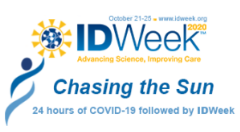
Bettina F. Fries, MD, FIDSA
Chief, Division of Infectious Diseases
Renaissance School of Medicine at Stony Brook University
Disclosure: I do not have any relevant financial / non-financial relationships with any proprietary interests.
Bettina Fries, MD, is a nationally recognized physician-scientist in Infectious Diseases and Microbiology. She received her medical diploma in 1991 from the Albert-Ludwig University of Freiburg. She also completed an experimental research thesis at the Max Planck Institute for Immunobiology and was awarded a “ Medical Doctoral degree” in 1991 from the University of Freiburg. Dr. Fries was awarded a research fellowship by the Deutsche Forschungsgesellschaft and started her professional career in the US with a Research fellowship at the Fred Hutchinson Cancer Research Center. Dr. Fries completed an Internal Medicine residency and an Infectious Disease Fellowship at Montefiore Medical Center and Einstein College of Medicine in the Bronx, New York.
She is a tenured Professor and Chief of the Division of Infectious Diseases in the Department of Medicine in the Renaissance School of Medicine at Stony Brook University. She also has a co-appointment in the Departments of Microbiology and Immunology, where she mentors and teaches graduate students. Before her appointment at Stony Brook, Dr. Fries was faculty for 14 years at Albert Einstein College of Medicine in the Bronx, NY. She also served as an Associate Program Director in the Internal Medicine Residency program. She continues to practice as an ID consultant and Internal Medicine Attending at Stony Brook University Hospital and the Veterans Hospital in Northport. As a physician-scientist, Dr. Fries has received uninterrupted support from the National Institutes of Health for her research for over 2O years. She has also received research support from the Department of Defense, the Veterans Administration, and private foundations. Her research focuses primarily on the pathogenesis of chronic fungal infections and the development of monoclonal antibodies against multidrug-resistant bacteria. The Fries laboratory’s research has contributed to our current understanding of how Cryptococcus neoformans change during chronic infection. Early in her career, she investigated phenotypic switching in C. neoformans and identified ALL1, a gene regulated by phenotypic switching, that affects the viscosity and length of the cryptococcal polysaccharide. More recently, her group has worked on investigating replicative aging in C. neoformans and other pathogenic fungi. Dr. Fries’s group was the first to show that replicative aging generates heterogeneity in C. neoformans populations, leading to a resilient phenotype. Her group showed that the older C. neoformans cells resist the host immune response and resist killing by antifungals. Older C. neoformans cells accumulate during chronic infection in mice and humans. The concept that aging promotes heterogeneity in fungal pathogen populations is novel and relevant also for Candida glabrata and Candida auris, where aging leads to remodeling of the fungal cell wall and changes in ergosterol pathway and efflux pump activity. The Fries laboratory’s antibody research focuses on developing novel therapies for multi-drug resistant bacteria. They are developing monoclonal antibodies to the polysaccharide capsule of carbapenem-resistant Klebsiella, which in the US is one of the most common multi-drug resistant bacteria isolated from infected patients. The polysaccharide capsule is very heterogeneous, and in addition to developing monoclonal antibodies, her group aims to identify cross-reactive epitopes that can be used as lead vaccine targets. In the past, her laboratory has also significantly contributed to basic knowledge of antibody biology. They have shown that isotype switch variants differ in their protective efficacy. They have demonstrated that a combination of non-protective mAbs can enhance efficacy by inducing subtle allosteric conformational changes in Staphylococcal enterotoxin B that perturbs the formation of the SEB·T-cell receptor MHC class II trimer. More recently, these nuanced epitope characterizations by NMR and crystallography enabled the identification of superantigen-like epitopes in the spike protein of SARS-CoV2.
Nationally, Dr. Fries is a Fellow of the Infectious Disease Society of America and has actively participated in different roles at IDweek. She is also a member of the American Society of Microbiology, an elected Fellow of the American Academy of Microbiology, and the American Association for the Advancement of Science. She has served as a distinguished lecturer for ASM and was recently elected distinguished Professor of research by SUNY. In the past, she served as the President of the Infectious Diseases Society of New York and is currently the President of the Medical Mycological Society of the Americas. Dr. Fries has published over 110 original scientific manuscripts. She is also a regularly invited speaker at international and national conferences.

